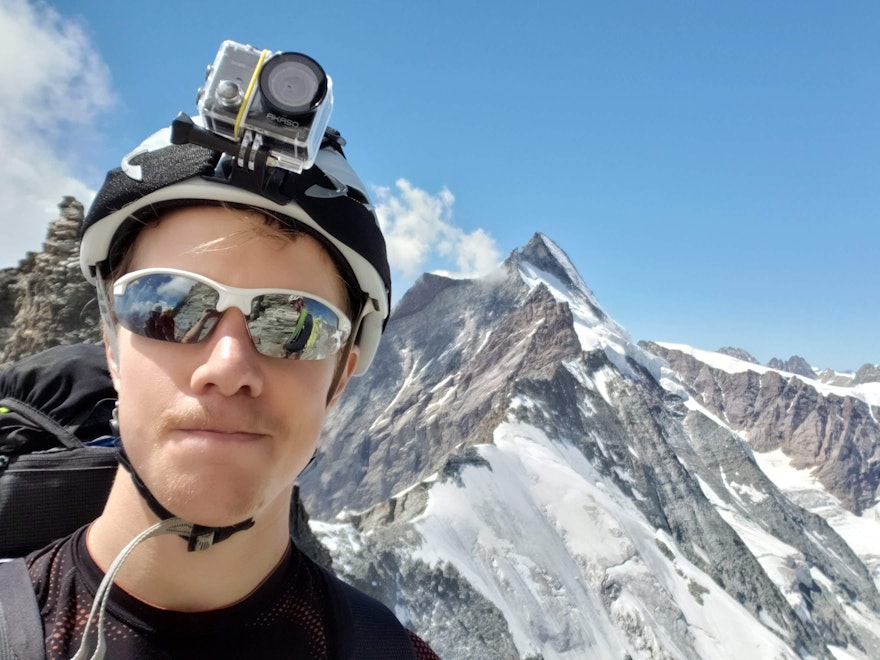Introduction
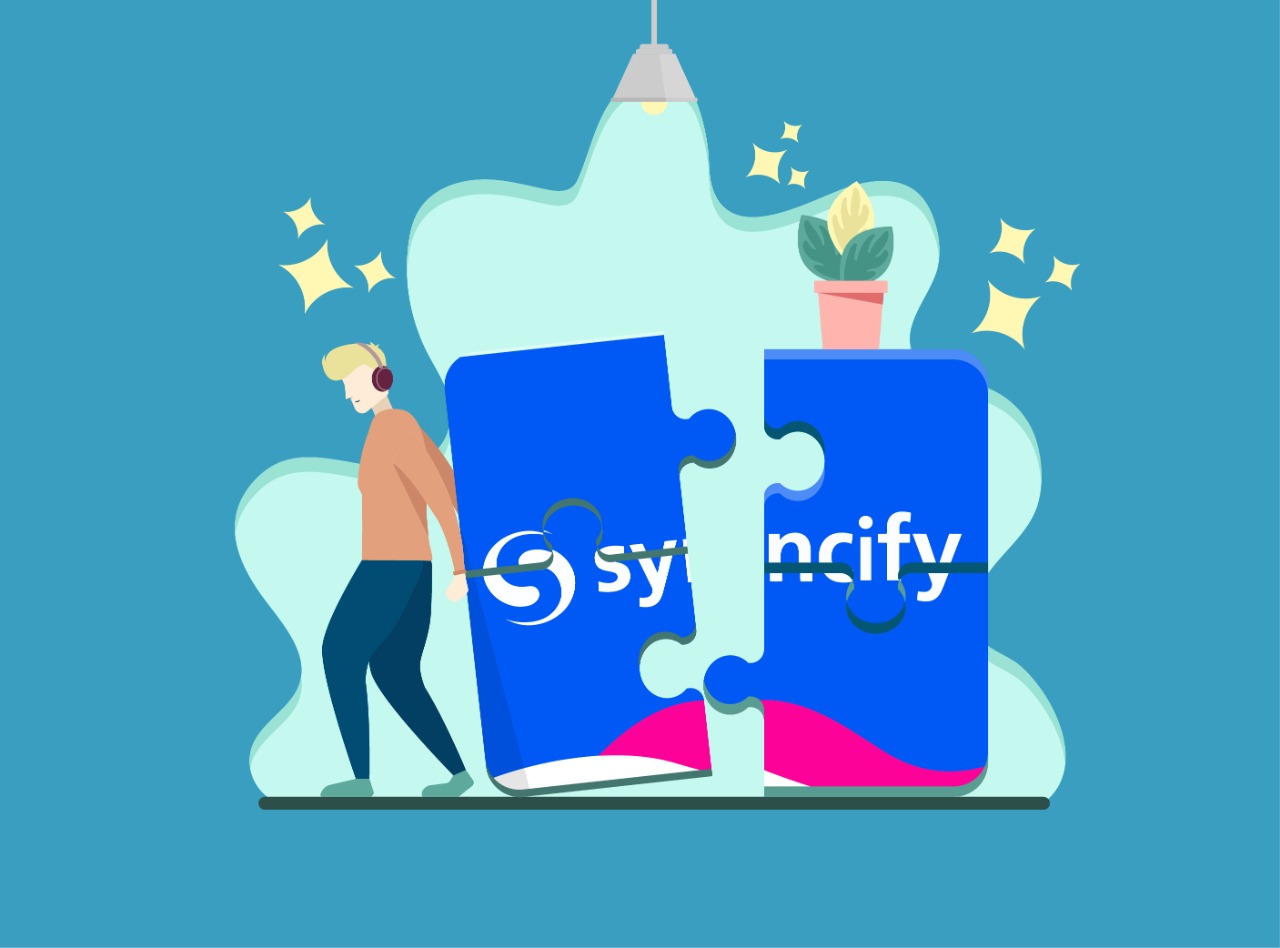
The shortness of life is a brilliant tragedy that many of us fail to realise. We are taught how to operate in society and align to what the world tells us is the life to lead. To get an education and a job. But we aren’t taught how to live.
We aren’t taught that everyday is a moment we will never get back. Every day you are writing the story of what you did with your life.
We have this evolved desire to impact the world around us and yet we are taught to just fit into it. I have spent my life coming up with ideas and for the most part failing to make them happen. The reason I’m an entrepreneur is to make my ideas happen, because not doing that is a denial of who I am.
Coming up
This is a long post. It explains the three main reasons for why I am building Syncify. It also explains who I am and some of my journey up to now.
Whether you are a potential user, employee, or investor, I think you deserve to understand the why, who, what.
--------------------------------------------
1 - Having vs creating ideas
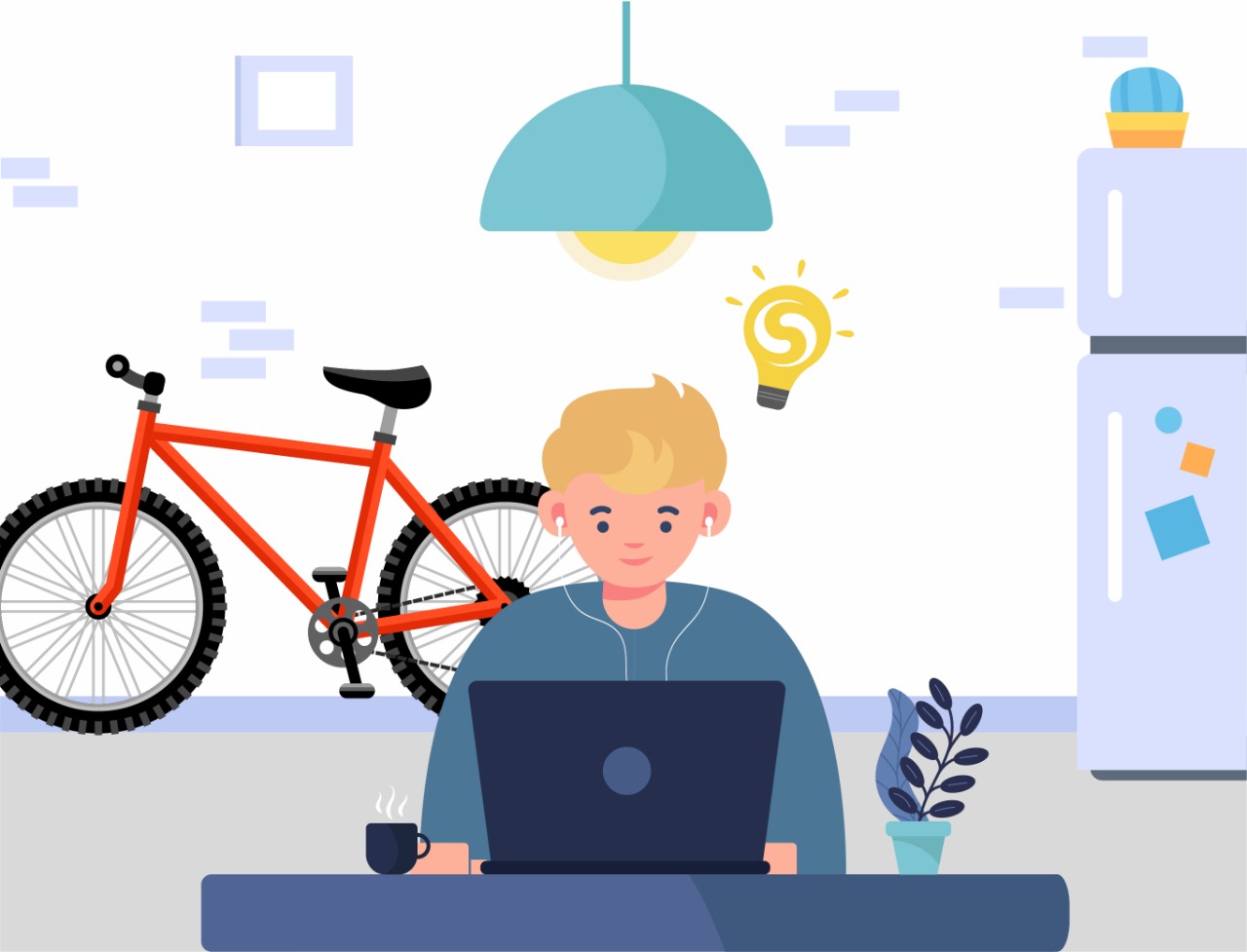
Audio sync app thing idea
The first genesis of the Syncify idea came to me in my university dorm. This was 9 years ago.
Unlike great tales of successful young founders who changed the world, I didn’t quit my degree and start a business that grew faster than I could ever predict. I added it to my stupidly long list of potential ideas and enjoyed imagining a world that was different.
Music syncing
The idea was to let people listen to music in sync, like a silent disco with your friends. I enjoy music and enjoy sharing, it would have been great to share listening to things with people whilst they were in other places. Like a direct personal connection to my mates. I was also insanely busy running a different business and not socialising much and lacked connection with people.
I also figured it would be super fun for parties to have a big silent disco going on. You could have sound-clashes between the people there and if you felt like not listening then you just remove the headphones and don’t have to. Also no complaints from neighbours as it doesn’t get too loud.
Why I didn't start it
I wasn’t technical and had no clue how to build it. My business at the time was an eco logistics company. We had just started Deliveroo style deliveries (2 years before Deliveroo existed). I actually had to stop that arm of the business because it grew too fast. I wasn’t technical or able to build the software needed to automate it.
My current business and degree was already too much for me and I wasn't keen on failing my degree. Thanks for society for telling me I need a degree I haven’t used... If I knew what I was doing back then from a technical stand point, maybe I’d be that guy that dropped out of his degree to become a billionaire. 🤔
The audio sync app idea thing was parked on my long list of cool ideas that should exist in the world.
First prototype
A few years later we tested audio syncing on a ski trip with friends. We made playlists and all hit play at the same time. Being able to dance in time with each other was such a brilliant way to enjoy things. There was something really cool about skiing separately for a few hours and then joining back up and still being able to sing the same words to each other.
Still I did nothing with the idea.
Finding a why
Over the last 10 years I’ve done many things and become increasingly annoyed at my inability to build tech myself or convince others to believe in my ideas. When I hit 24 years old I sold my first eco-logistics business, despite missing out on the Deliveroo potential I had still exceeded my personal goals for success by that age. I had doubled my money every year between 16 and 24 (I had £1000 savings at 16).
I decided that trying to directly earn money wasn’t going to help hit my much bigger goals. I couldn't keep doubling by doing what I was currently doing. The most I had earned was £100,000 in one year and wasn't too sure how I did that.
Success ceiling
Consider two people:
- Person A - They are worth a million pounds financially, earned through a regular wage and it takes ten years to get to the next million.
- Person B - They have nothing in the bank. They have the skills to create a million pounds in a year.
You would rather be person B. That requires skills that I didn't have.
I also hated the idea of a job and didn't even know why I had targets in my life plan for money which wasn't making me happy at all. I wanted to be a person of value, but didn't know what that meant. I took a year out to study music production and think about happiness.
What makes me happy?
I have always been an inventor. Since I can remember, I have been thinking about problems in science or life and coming up with ideas. The ability to make the idea happen makes me happy.
I've never been able to make the really big ideas happen. It seems logical that the really big ideas would make me really happy.
For example, here are some notable things that passed through my brain over the years and subsequently went on to success:
- 1996 - At 6 years old I invented a Hyper Loop style system to get to my grandparents without traffic. I hate traffic = Didn’t make it happen
- 2006 - At 16, I invited solar floats to cover rapidly shrinking lakes and damns to save water and create power = Didn’t make it happen
- 2008 - At 18, I Invented solar roof tiles that had conduction points at each corner allowing you to cover a roof of any size = Didn’t make it happen
- 2010 - At 20, I invented an Uber style app for a pedicab business idea. The business happened but the app didn’t = Didn't make it happen
- 2011 - At 21, I invented and ran Tecoway, (the Deliveroo business). Stopped the idea. = Didn’t make it happen.
- 2016 - At 26, I invented a crowd emergency response app that lets local people in your area come to an emergency (such as first raiders or someone with an EPI pen). I even won a hackathon with a prototype but didn't follow up = Didn’t make it happen
You may not of heard of it but 1 year later the exact same app idea was funded by NHS GoodSamApp, (totally wierd that they have my name on it right...). This year it was quickly transformed into the app being used by NHS for the millions of covid response volunteers in the UK.
What do we learn?
Ideas have no value.
→ I had no value.
People that make ideas happen have value.
→ I needed to learn the skills to make ideas happen.
So the big idea became how to get better at executing ideas. The skills and network needed to get there.
Success habits
I started practicing things that would increase my capabilities to be a person of value. I stopped focussing on money and focussed on habits that would grow me.
Started a podcast
- Growth Mindset Podcast - Interviewing awesome humans like the founders of Skype, Oddbox, Freetrade, Charles Tyrwhitt is a great permanent side hobby. Growing my network and following, now with millions of downloads.
- I also learnt a lot about business and mindsets from the best. Being coached by individuals such as the head of the British athletics olympic team or the founder of Photobox for free is a real perk.
Learned to code
- Embraced my inner geek building cool things such as trading bots and a game to learn people’s names. Even earnt dollar building an AI doctor app.
Learned to speak
- I am verbally dyslexic, growing up I was shy and un-coordinated with speech, in a big way. It took me 9 months to record the introduction for my podcast. By the second year I recorded my own podcast. The third year I went all out and took a public speaking and stand up comedy course.
- I’ve now won various toastmaster competitions, headlined a stand up comedy show, and given a Tedx speech.
Sam Harris - Headlining first stand up comedy gig
Sam Harris - TEDx - The genius you need to listen to is yourself
Learned to write
- Being dyslexic my thoughts come out in a confusing mess. Being able to write is essential if you want other humans to understand you or your ideas.
- I complained about my degree earlier. It wasn't that bad. I contradict myself in this great blog about the value of a science degree
Learned from books
- The last three years, I’ve read over 100 books a year. I’m not into hustle porn and saying you won’t make it without reading. But people with the best knowledge in the world put a lot of effort into neatly packing it into a book for you, if you’re curious about improvement you should probably read.
- This year (2020) I launched the Wiser Than Yesterday podcast discussing one great book a week.
I don’t want to give false impressions. I did not put myself through a completely thought out and perfect bootcamp to become a better entrepreneur.
It was a very random affair, mostly following my curiosity and going in many eclectic directions. My podcast doesn't focus on just great business leaders and is basically an excuse for me to talk to anyone fascinating. (I particularly enjoy talking to people that are exceptionally happy but aren't successful financially and people in the middle of their journey.)
Instead of focussing on the goal of success it’s better to focus on the habits of success.
Near the start of my podcast the inventor of Siri told me that he never took a job because it paid more. He always optimised for learning and moved on as soon as he felt he wasn't learning fast enough. In the long run it led to him becoming a billionaire.
This firmly resonated with what I was doing. It also conveniently gave me a brilliant excuse to tell my mother why I have never had a long term real job.
Unsuccessful meandering
I tried many things in the last 5 years whilst searching for ways to make ideas happen.
- Joined a startup measuring human emotion with AI
- Started an adventure travel business
- Nearly died skiing
- Did a code bootcamp in Brussels.
- Took a front end dev job for buzzhire
- I joined a friend's business idea which went spectacularly wrong
- I went around the world (notably hitchhiking Kazakhstan and visiting North Korea)
- Lost momentum on coding
- Studied the science of learning (why don't we teach that at school?)
- Joined a different friend's business idea which went uneventfully wrong
- Did a code bootcamp in Israel (notably visiting Palestine a few times and WTFing)
- Nearly died kitesurfing
- Did the whole Tedx and comedy thing
During this time I regularly felt disconnected from my friends but didn’t know how to solve that. With all the podcast work I had a few ideas to solve my podcaster problems.
Idea one
Build a podcast editor that lets users edit the transcript and sound file at same time. We got as far as making the transcripts match the player and being able to highlight and delete things.
Two weeks into it I found out the ex-founder of Groupon launched the same idea with oodles of money backing him (Descript).
Idea two
Build a tool that lets podcasters publish podcasts on video and audio at once on YouTube, Facebook, and your podcast host. I got as far as turning a piece of audio into a video with a title and photo and a sound wave but none of the automated connections.
It was launched by some cool dude (Repurpose.io).
Syncify re-surfacing
The whole time the idea of listening to things with others has never left me.
On my travels, I tried listening to an audiobook with a friend at the same time. He was an ML grad and we listened to ‘SuperIntelligence’ together.
Sharing our thoughts at the end of each chapter opened my eyes to how much you can learn from other humans. Also, how much you can learn yourself, by putting your own words to vague concepts in your head.
Since then, the value of reading or listening to things seems hollow if I’m not doing it with another human. You can’t share an understanding or discuss the millions of questions that arise. You are very alone.
The sharing problem
The frustration at trying to share podcasts with others drives me nuts.
I’ve started/joined book clubs and podcast clubs to enhance my learning from things. The book clubs work as it’s easier to commit to read a book a month with mates. The podcast problem is completely unsolvable with current tech.
Trying to get someone to listen to the same thing as you is ridiculous.
- You recommend something
- If you write a really strong recommendation, they will decide they want to listen
- Maybe they remember to search and find the podcast on their app
- Maybe they download the right episode
- Maybe they add it to their queue.
- Maybe they listen a month later.
- Maybe they remember you told them to listen to it.
- Maybe they thank you and tell you it was a good episode.
You can’t talk about any details because you have now forgotten it. You agree that it was good.
Mostly that doesn't even happen as there are 7 break points before the message gets back to you.
Recommending is purely an act of kindness and you don’t get any benefits of actually having a useful conversation. You would both get so much more if you listened on the same day and actually spoke about the great ideas.
Solving the problem
Some things frustrate you. If an idea doesn’t go away and no one else is solving it. You either accept it or do something. Complaining doesn’t help.
Syncify became a solid idea to help me on my curious journey to learn more. I’m doing all these things to improve myself but I’m running into the same problem.
Even now whilst building Syncify, it’s hard to actually be in sync with my cofounder.
I have been recommending the Y-combinator startup school video/podcasts for us to all to listen to. I’ve said it in calls, meetings, on WhatsApp, Slack. After a month of prodding we were still failing to be in sync on this brilliant content.
It is insanely useful information to help us with our problems. I genuinely had to create an excel board with details and links to each lesson and book a calendar date for each one to discuss ideas in it.
It forces us to all listen to the same thing on the same day. We talk about the things we need to build our business. It's aligned us on the brilliant things we can learn and created a shared consciousness around what is most important.
It's saved me days of frustration explaining why an idea in my head is important. Because the idea is in all our heads. It’s genuinely been the biggest source of happiness for me so far during running the business.
It will work
I can’t explain my relief at the switch in our team dynamic.
I had the feeling of a confused founder with a team of people pushing in different directions. We all had well intentioned but slightly different ideas. I was constantly running around trying to get the thoughts in my head into other peoples.
Working remotely wasn’t helping things at all. The satisfaction of creating team alignment, that we are pulling in the same direction is huge. I can focus on my tasks and know that others get what they are doing.
Why build it?
Firstly, I am building Syncify to end my frustration of being mis-understood. To stop the lack of connection that wastes time and effort. To create a shared understanding around the things I think about. No doubt this is a tool for me.
It's reached the point that I genuinely feel like running up to people and screaming. It's like humans are stupid for not understanding the importance of finding ways to align their thinking with others. They consume random content on their own and they can't talk about it. Why?
This idea has taken over me and I feel like it is going to burst out of me. I feel like I will go completely nuts trying to convince people about this when I may as well just build it.
Every person I’ve got to use a hacked together version of Syncify has been overjoyed from the insights they get. I feel I need to liberate humans from the hours of hollow and vacuous time they spend listening to random stuff.
I am building this tool to stop people wasting their time.
----------------------------------
2 - Anti-social media
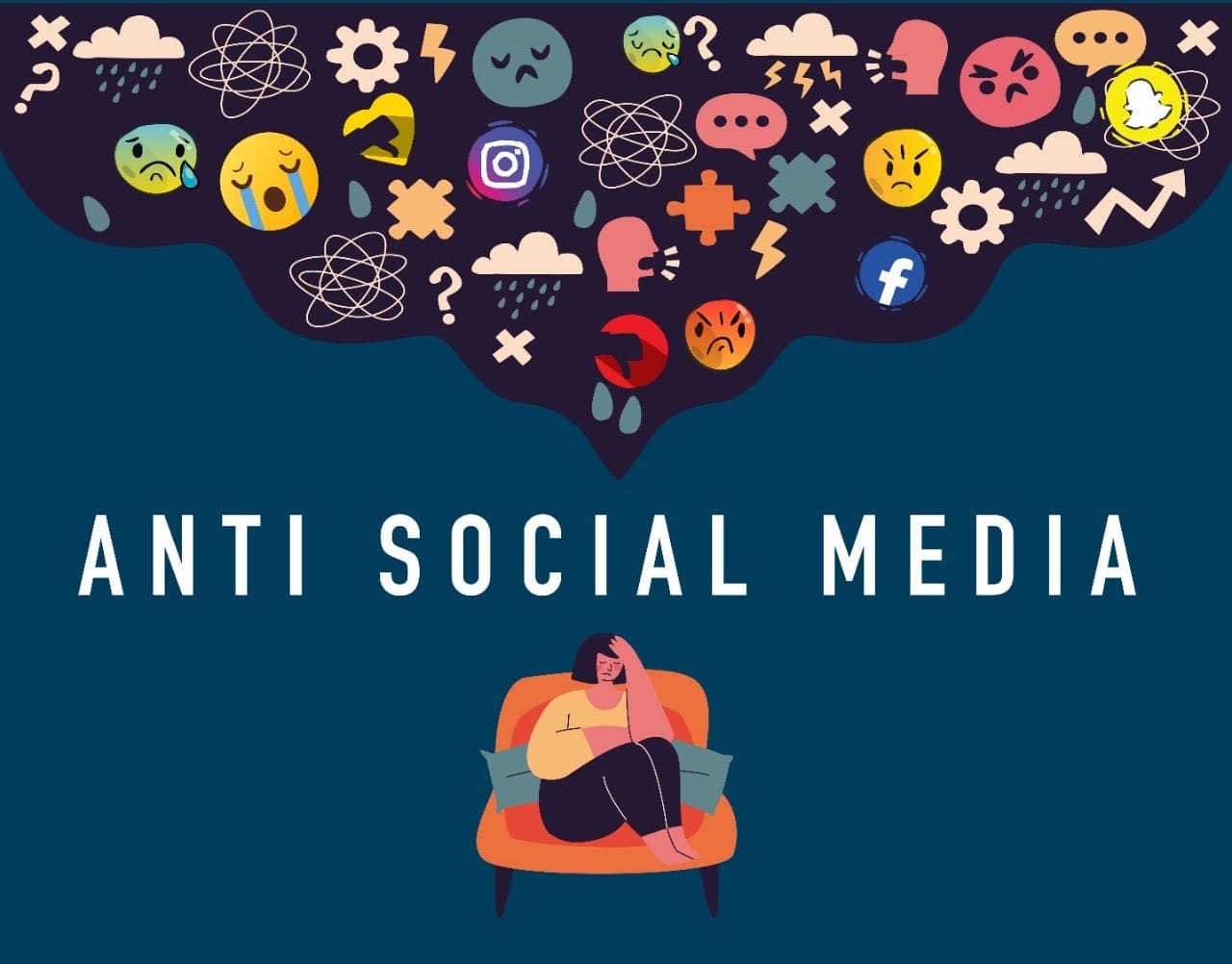
I dislike social media. It is antisocial.
I speak about my dislike of social media so much that I was invited to do a Tedx speech on the topic. I covered technology and how it harms us and how to form a healthy relationship with it.
What is wrong?
Social media is a very odd place where you disconnect from the present world. You talk about yourself and the best things you’ve done. You endeavour to look cool.
You have the goal of being cool but you don't have the habit of being cool. You have the habit of obsessing over how you look in things and getting your camera out all the time. You trade being an awesome human for being a neurotic obsessive.
You don’t have meaningful conversation or any shared understanding. There is no relationship development, you don’t become better friends on social media with any of your connections.
The world doesn't like you
Statistically you follow people with way more followers than you have. Your feed is full of mostly people who are way cooler than you and have a much more perfect life than you. A nice bowl of shame for breakfast.
You like things and laugh at stuff, the meanwhile you try to create stuff other people will like.
Statistically I have found that I ‘like’ the world 900% more than it likes me. That is a rather depressing ratio that is true for 99% of people when you think about it. (celebrities get 1,000,000% more likes from the world than they can give back, it’s just maths)
Toxic social reconstruction
Social media has concentrated all most toxic parts of being a teenager.
The status and attention seeking bitchy world of awfulness. Its claws come at you from a bunch of different apps all grabbing at your attention 24/7. That isn't healthy.
Truly social tech
The technology on your phone that you have with you all the time should be the opposite. It should enhance your life and make it better. Any “social” apps on your phone should:
- Make you fundamentally happier with yourself
- Be a source of real connection with humans and help develop relationships
- Make you wiser about the world
- Help you feel understood and understand others
These are the goals of syncify.
The differences
We don't need an asynchronous warped view of other humans. We should connect directly around shared experiences. I want the good parts of my social life, not the toxic parts.
I enjoy doing things with others, not struggling to show off to others.
Anti-social media = creating media about your life = narcissistic + isolating + comparative
Truly social media = share the media you enjoy in life = empathetic + unifying + collaborative
The media that already exists is something we can all engage in universally.
Practical example
I can’t jump off a waterfall in Bali with a friend who is out there, whilst I am riding the tube in London.
It's physically impossible, we just can't share that experience.
I can listen to the same podcast or book that they are whilst they ride their bus to the epic waterfall.
That is an experience we can both share. It is something that provides a framework for natural conversation about things that interest us both.
Loneliness
Relating to each other
Humans like to talk about things they can relate to. This is why in Britain we talk about the weather a lot because we can all share our collective exasperation at it.
What if you suddenly had a tonne of things you are actually interested in to talk about with your mates?
I want to unlock the ability to connect with humans more naturally and relate to each other.
Mis-understandings
Recently my flatmate went to Morocco and posted many amazing photos from her adventures. When she got back we were very surprised to find out she hated it and is never going back.
When my mate posts her photos of Morocco and I post my amazing dinner:
- We don’t see that we are both fascinated in pondering what equality means
- We don’t see the thoughtful insights we both have from our interactions that day
- We don’t see the troubles we battled through
- We don’t see that we are both lonely
It’s a fake world that in no way helps you find your place or feel understood. I’ve never made a friend on social media or developed a relationship with it. It lacks soul. It eats away at your precious time and yet it only makes you more lonely.
Loneliness is a huge problem in the world that is only growing. It comes from not sharing experiences with other humans and not feeling understood. At the core of Syncify I want to fix these two things and reduce loneliness.
I am building Syncify to make myself, and other humans happier.
------------------------------------------
3 - The education problem
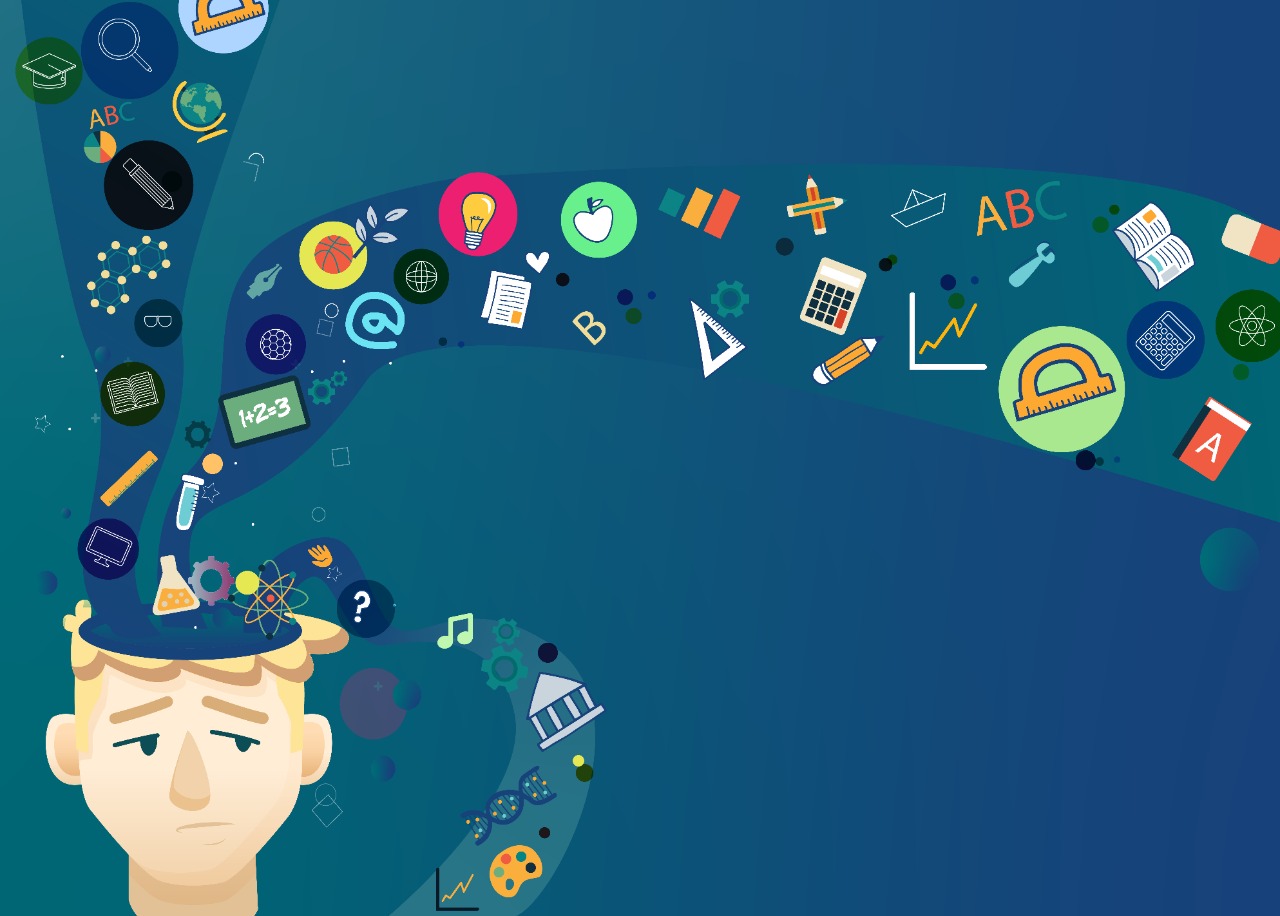
We are surrounded by information but it doesn't seem to get into our brains in the right way to make us successful.
Humans do not suffer from a lack of information. This is a nice quote:
"If information was the solution, we would all be millionaires with six-packs."
The chasm
The problems we experience between information and results are:
- Lack of understanding
- Lack of motivation
- Lack of self-control
- Lack of self-belief
An education should not just dump information on you. It should equip you with all these tools to actually improve your life and make you wise.
Making ideas happen
I already mentioned ideas are useless.
Just putting a bunch of ideas in your brain doesn’t do anything. Anyone can give you a formula for success. You need to make those ideas happen.
Listening and reading podcasts and books is a brilliant way to get a lot more information in your life. But it takes active engagement to turn this information into wisdom.
Learning methods
Formal learning
When you study a degree you are handed a load of information. But you don’t listen to a lecture once and then ace your exams.
You make notes, you do homework, you have labs, you have field trips, you revise, you have debates, you do extra research, you take practice exams, you write reports, you write dissertations, you get feedback and mentorship.
Passing your exams is the goal. But there are a tonne of habits that lead to that success. It's these habits that make you a person of wisdom in this domain.
Informal learning
Reading a book or a podcast is done alone and done once. It goes in your brain and isn’t acted upon.
You fool yourself into thinking you’ve learnt something and then quickly forget it. Life trundles on relentlessly and you blast your brain with more information.
Listening to a podcast on business won’t turn you into Elon Musk.
So if you start at a 0/10 in the wisdom scale and listen to a podcast I would say you are at perhaps a 2/10. Listen to a longer book then you are maybe a 3/10.
Listening alone to something once without any habits of learning is actually rather pointless. It is a nice way to distract yourself.
Improving informal learning
Learning alone
I can’t facilitate a practice of going above and beyond in every aspect to get myself to a 10/10 with everything that interests me (I don’t have time to do a phd on everything). But I’ve tried to find ways to get myself to above 5.
Reading is the start but you need to do more.
1. Notes - Making notes instantly helps but takes time
2. Talk to yourself - Asking myself questions and speaking out loud helps a lot. I identify things I don’t understand half as much as I thought I did. Speaking your own words out loud helps formulate ideas into a more solid structure in your brain.
These are both personal activities and hard to make yourself do.
Your memory has few hooks on the idea. It is just a singular experience of the content and has only your unchallenged views.
Learning with others
As soon as another human is involved in an idea, you instantly have more images and feelings in your brain around the topic.
You learn what your friend thinks at an information level, but you also absorb how they feel and perceive something. This bolsters your memory bank.
Furthermore, You also tell them how you feel and what you think and the information you have around it. This makes you smarter on the topic and builds your memory and capacity to talk about it. They might not understand you and you feel the need to improve your ability to explain.
I also find talking to other humans much more natural and less of a hard thing to make myself do. It directly gets me to a 4/10 with no active effort.
Informal learning discussions
If I put a framework around the discussion that helps even more. Planning what we are going to discuss and what we want to learn.
I more actively engage as I listen or read because I am thinking about the how to discuss the topic whilst I’m listening to it in the first place. I'm looking for the opportunity for further insights.
The discussion puts more of a framework around getting useful insights from each other and upgrading our knowledge.
Self-help coaching
When we talk with other humans about the things that are important to us we become wiser. That is why coaching exists.
I don’t need to pay a coach hundreds of dollars an hour when a friend can read the same book as me and just ask me the questions and listen to the answers. All I need is a friend on the same page(literally and figuratively) as me at the same time.
Crossing the chasm
Discussing with other humans in an organised way helps to cross the chasm between information and success. Especially with self-help books.
1. Learn from others and yourself. Take the time to explore ideas that go further.
Understanding increases.
2. Discuss our problems and talk about solutions. If I share the solution I need to take with another human. I am much more likely to do it than if it briefly passes through my brain in private.
Motivation increases.
3. Share the difficulties you have and the desired end goal. Receive tips to maintain progress and advice on breaking things down into steps to get there. The target feels achievable and you develop more awareness in my actions. Know someone else is aware of your challenge and feel more responsible to hit it.
Self-control increases.
4. Discuss personal blockers and expose self defeating views. Get support that can be taken on these things. Self belief increases.
Achieving wisdom
I don’t have time for more university degrees, but I want to extract as much wisdom from the information I consume in my life. This is why I am building Syncify.
To be able to coach and be coached by my friends. To take my lessons and ideas from content to the next level. To naturally increase my motivation, self-control, and self-belief with minimal time and mental effort required.
I am building Syncify to make myself, and other humans wiser.
------------------
Conclusion
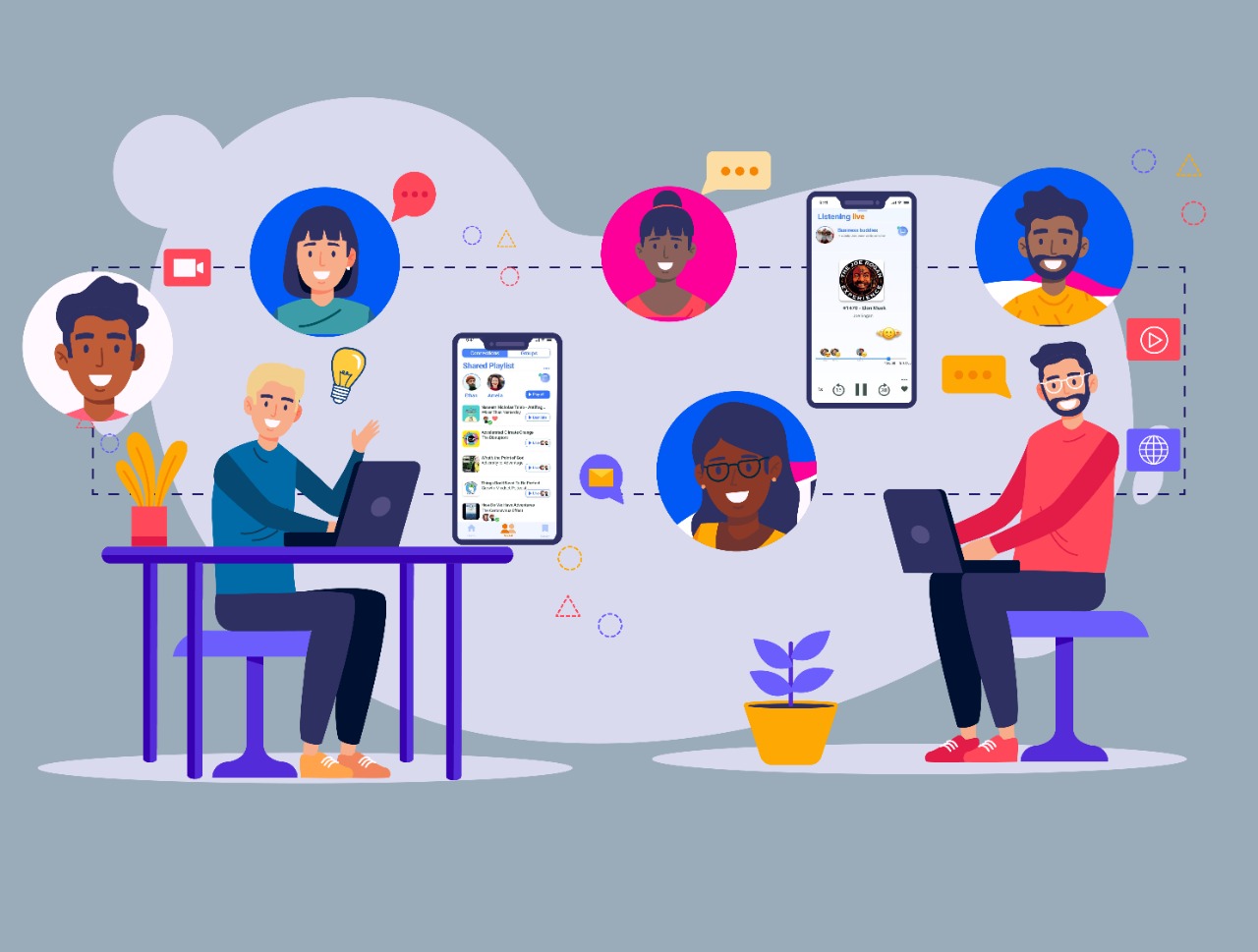
I have some big frustrations which I feel I can fix with Syncify. The last few months have only compounded this further.
I started working on the idea of Syncify last year, but was busy with a Tedx speech in March 2020 which led to me doing a stand up comedy course, and a tonne of toastmaster events in preparation. I was giving speeches everyday to really ramp up my skills. A huge increase in my capacity to woo a crowd. Zero increase in Syncify progress. I postponed work on Syncify until after my speech.
I gave my speech March 14th 2020 and then went into my own lockdown to focus on Syncify.
COVID-19
Timely, the rest of the world went into lockdown because of COVID-19. It would have been very convenient if Syncify existed at this point. The world was craving connection and any solutions to loneliness. Netflix party grew 20000%. Everyone downloaded House Party.
Syncify suddenly became a very timely solution to a timeless problem.
Black lives matter
In May 2020, George Floyd was killed and sparked the sudden rise in the Black Lives Matter movement. Many of us realised how badly we mis-understood others and ourselves. There was and still is a need to share knowledge and to become wiser on the topic of racial injustice and equality.
Information is the first step but really changing and insightful conversation is needed.
It is hard to discuss one's feelings on social media in a practical way, it's a place to publicly show off to the world, not a place for deep personal conversations of understanding. Any statements have a double meaning because everyone knows they aren't your thoughts, they are your public thoughts.
Understanding
What we need is safe ways to learn to understand each other and ourselves. Being told you are racist is a very personal thing. People need to come to terms with this in an environment that increases their understanding rather than makes them defensive.
I am a human that is hungry to learn and became a raving feminist in the last few years. It amazes me how un-wise I was on the truths of racial injustice and it was a hard pill to swallow. I usually pounce on anything that might prove me wrong as I seek to find wisdom rather than ways to just prove myself right. This took a while but I'm glad I took the time to learn.
It is still something that is hard to talk about and would be really useful to do with other humans from a shared understanding. There are many things to discuss and many ways to offend each other. Going through the same things at the same time when you both have the same understanding is essential to peaceful resolution.
This is something that I really hope Syncify can help. To be a place that facilitates more informative discussion that helps us understand each other better. Something that can connect us as humans rather than drive us apart.
The future
2020 has been a crazy year and there have been two huge events that made me wish Syncify was out there. I do wonder what will come next.
In the interest of wild predictions I feel like if we have a record breaking summer of heat and drought and on the back of seeing how rapidly humans can change the world when they put their mind to it. Maybe this could result in a climate change movement 🙏
I know that COVID-19 has been a big problem, but we have been lucky that no other disasters have happened at the same time such as earthquakes or hurricanes. There is never a good time for them, but it’s not like they care what else is going on.
All I know is that it is a time for connecting with humans and understanding each other. And whatever the future brings, this is going to be relevant.
Concluding the conclusion
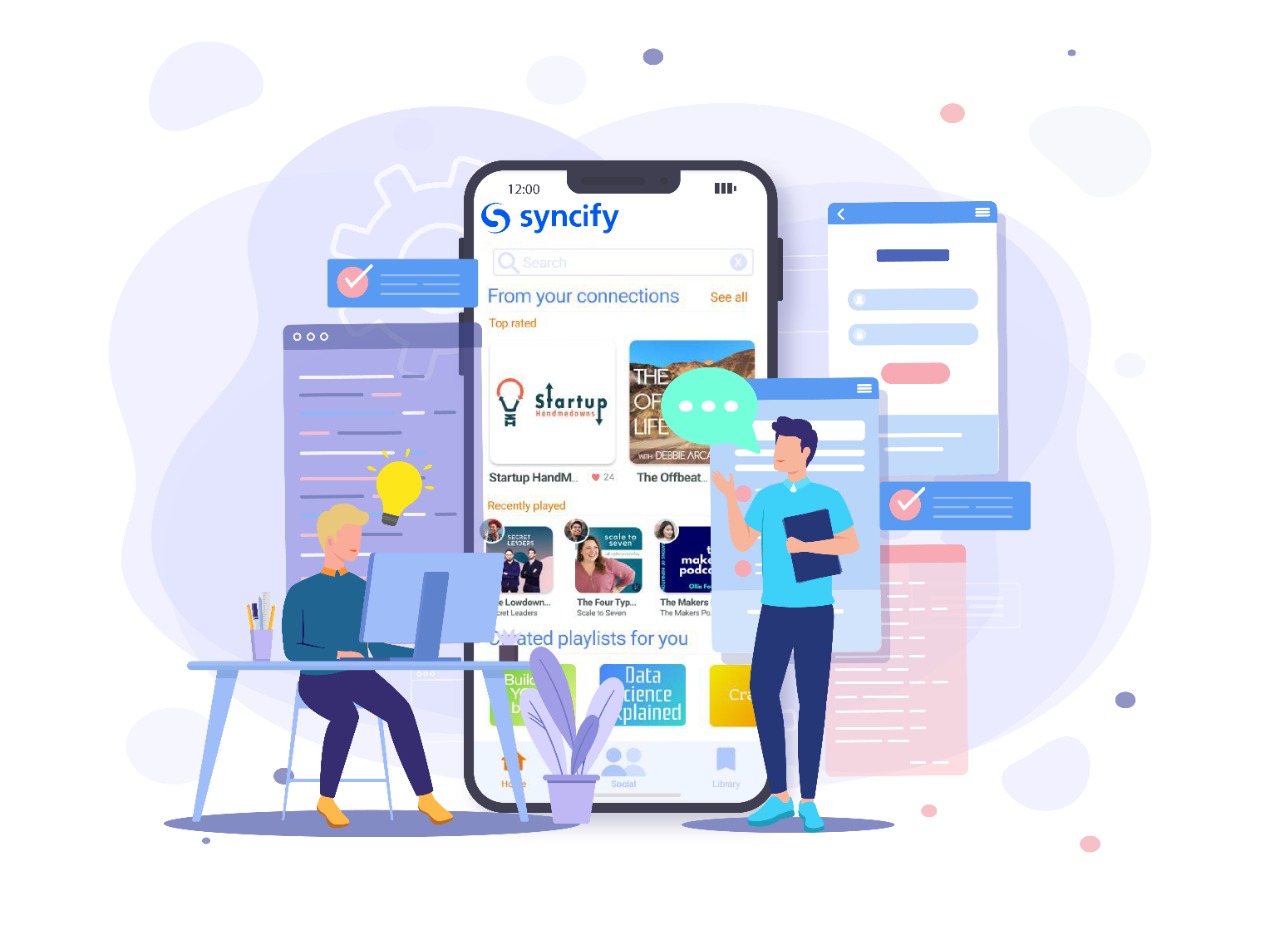
I started this post talking about the shortness of life and the importance of making each day count.
Ultimately, I believe that current technologies are eating away at our time, our attention span, and our ability to connect. Instead of being a habit that increases the value of our daily lives, engaging with tech is a habit that takes from it.
We have the goal of happiness, but our habits oppose this.
- To reach any goals of success, one needs to create habits of success to make them happen.
- To reach our goal of happiness, we need technology that gives us healthy habits of happiness.
The specifics of Syncify might change. The mission to create technology that creates healthy habits, will always remain the same.

